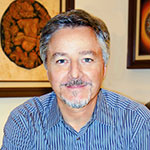In 1963, when Ralf Rodriguez’s parents landed in Miami, they were determined to rebuild their lives. Cuba could never have afforded them the opportunities they hoped for their son in America. Rodriguez loved school; he made good grades and excelled as an athlete. He worked as a paperboy in high school and learned how to manage money. Rodriguez’s goal was to be the first in his family to attend college and earn a degree. He held two jobs while attending the University of Florida to pay for his education.
After studying architecture and criminal justice, Rodriguez graduated in 1984. He then entered the Miami-Dade County Police Department and graduated at the top of his academy class. He worked as a patrolman but was promoted to detective within a few years. Rodriguez took a position with the Bureau of Alcohol, Tobacco, and Firearms (ATF) until an opportunity arose in 1994 that piqued his burgeoning interest in the legal field. “The ATF had a program,” says Rodriguez, “that allowed me to attend law school. The program was created so that agents could work more effectively with US attorneys, help them better understand the federal firearms laws, and improve the agency’s profile.”
Law school was not without its challenges. Rodriguez was required to keep up with all of his law enforcement duties while attending night classes at the University of Miami. The schedule was hectic but Rodriguez flourished, making the law review his first year and graduating with honors in 1997. Rodriguez’s unique background earned him numerous job offers from top law firms. He chose Buchanan Ingersoll, PC, a firm with approximately 400 lawyers nationwide and a small Miami office.
Just 18 months after graduation, Rodriguez found himself trying a federal case. His opposing counsel was a senior lawyer who specialized in transportation law, upon which the case hinged. Rodriguez obtained a directed verdict from the trial judge, and although the appeals court reversed the decision, the case was slated to go before the US Supreme Court. The case eventually settled before he filed for certiorari review, but the experience was formative and influenced the transportation clients he still represents today. Rodriguez continued to build his expertise and in 2002 found his way to Peckar & Abramson to work with “the finest lawyers in the field.”
Defending children and the elderly is especially rewarding for Rodriguez. In 2005, he defended a juvenile against allegations of aggravated stalking. The accuser was related to a local police chief who politicized the case, causing the local state attorney to push for Rodriguez’s client to be tried as an adult. That was when Rodriguez’s investigative skills kicked in. “I knew my client should not have been prosecuted as an adult and doubted the veracity of the allegations,” he says. “My client should never have been charged.” The state attorney, however, insisted upon felony charges, so Rodriguez prepared the case for trial. He tracked a witness to Santiago, Chile and flew a court reporter there to take a deposition. The testimony completely exonerated Rodriguez’s client.
Rodriguez continues defending many other clients, including the suspended mayor of Miami Lakes, who is accused of taking bribes in connection with a federal grant application program. Always representing with passion and emotion, Rodriguez says, “You have to like what you do to be good at it. I give thanks every day that I am doing what I like.” As for the future, Rodriguez would like to teach at a university and mentor young lawyers fresh out of law school. He has even thought about running for office and serving as a judge. But for now, he is having “too much fun” in private practice.

